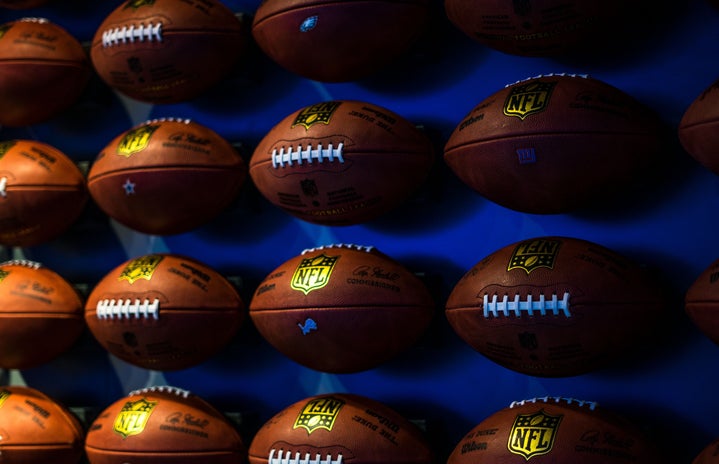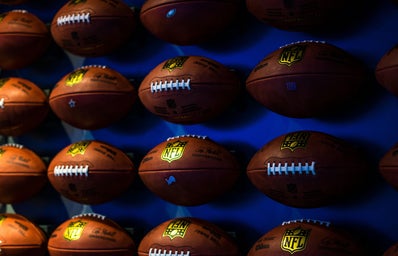For years there has been controversy surrounding one National Football Team’s logo and name: The Washington Redskins.
In 1932 a new national football team was established called the Boston Braves, but then in 1933, the team changed its name to the Boston Redskins when they transferred to Fenway Park.
Two separated stories arose based on the owner’s, George Preston Marshall, decision:
Marshall wanted to honor the team’s coach William “Lone Star’’ Dietz who claimed to be a Sioux (a group of Indigenous tribes and First Nations peoples in North American) and for the players who were Native Americans.
The Associated Press reported, from Marshall’s statement, that he decided to change the name so that they were not confused with the city’s professional baseball team: The Braves—known today as the Atlanta Braves. Then in 1937, the Washington Redskins moved to Washington D.C, where Marshall created the team’s fight song: Hail to the Redskins
Hail victory!
Braves on the warpath
Fight for old D.C.!
Scalp ‘um, swamp’ um – We will
Take’ um big score
Read ’um, weep ’um, touchdown,
We want heap more.
Fight on, fight on, till you have won,
Sons of Wash-ing-ton.
Rah! Rah! Rah!
Hail to the Redskins.
Hail victory!
Braves on the warpath
Fight for old D.C. 30 years later, a delegation of Indigenous leaders (Native Americans) met with the team’s president, Edward Bennett Williams. The leaders insisted that the football team change their name to something else disrespectful. Though the team did not change their name, to comply with modern times, the Washington Redskins did rewrite their controversial fight song. Today’s fight song: Hail to the Redskins
Hail, Victory!
Braves, on the Warpath!
Fight! For old, D.C.!
Run or pass and score
We want a lot more!
Beat ‘em swamp ‘em touchdown
Let the points soar!
Fight on, fight on
‘Till you have won,
Sons of Washington!
RAH! RAH! RAH! RAH! When the Redskins were bought by Dan Snyder in 1999, he said that he would never change the name, stating that the team’s 87-year Native American logo and old colonization name honored the Indigenous people. As stated by Snyder in 2013, “We’ll never change the name… It’s that simple. NEVER- you can use caps.” The team’s fans agreed with Snyder stating that “the word “redskins” means honor and respect, and that it’s a decades-old tradition that unites their city,” according to BBC.
Only talk emerged regarding the team’s decisions to continue on with the name and logo. But then public pressure and backlash increased after the wake of George Floyd’s death, which has redrawn attention on the team’s controversial name. The owner who was so strong-willed about no change has declared that he would consider changing the name “in light of recent events around our country and feedback from the community.” Though the main reason for Snyder’s decision might not be because of Black Lives Matters or Indigenous people, it may rather be due to pressure from the team’s sponsors.
FedEx, who owns the team’s naming rights to their stadium in Landover, Maryland, told the team that change needs to happen. Nike, Amazon, Walmart, and Target also stopped selling the football team’s merchandise in their stores. So when you try to search for a Sean Taylor jersey from Nike or Amazon, you won’t find anything under the search bar. In addition, Adweek reported that “87 investment firms and shareholders asked the three companies to terminate their relationship with the organization unless it changed their name.” In light of the corporations, it is clear that the team must be willing to change with the times if the league will be able to continue with their financial backing.
That is why on July 3, the team made a statement announcing that they would be retiring the Redskins’ name and logo. According to Snyder, “coach Ron Rivera will develop a new name and design approach that will enhance the standing of our proud, tradition-rich franchise and inspire our sponsors, fans, and community for the next 100 years.”
In response to the team’s executive decision, the Navajo Nation is considering July 13, 2020, a historic day for all Indigenous people. “The NFL Washington-based team officially announced the retirement of the racist and disparaging ‘Redskins’ team name and logo,” according to ABC News.
Though Washington’s NFL team has not yet released its new name, to fit in with modern times, the team will be changing its name and logo to fit in with the more politically correct age based on retaining corporate sponsors. To address the source of controversy regarding the team’s name, here is a brief history lesson on the word redskin:
Redskin first came about in 1769 when a British lieutenant colonel translated a letter from Chief Mosquito, who promised the officer safe passage if he visited his tribe.
According to a Smithsonian’s senior linguist emeritus, Ives Goddard, in Chief Mosquito’s letter, “I shall be pleased to have you come to speak to me yourself if you part our women and our children; and, if any redskins do you harm, I shall be able to look out for you even at the peril of my life.”
In 1812 President James Madison referred to the Native Americans at the Washington reception as “red people” or “my red children.” In response, Little Osage Chief Sans Oreilles (No Ears) voiced his support for the administration, according to the Washington Post. The chief stated that “I know the manners of the whites and the redskins.” Chief French Crow also complied along the same lines as Little Osage Chief Sans Oreilles: “I am a red-skin, but what I say is the truth, and notwithstanding I came a long way I am content, but wish to return from here.”
Then in 1863, the word redskin had officially become a derogatory term when The State increased the reward to $200 for every redskin (Native American) that was sent to Purgatory dead.
In 1898 Webster’s Collegiate Dictionary defined the word redskin as often contemptuous. Cited: Wendling, Michael. “What Native Americans Think of the Word ‘Redskin’.” BBC News, BBC, 9 Dec. 2014, www.bbc.com/news/magazine-30314290.
Wallbank, Derek, and Bloomberg. “Washington Redskins’ Preferred New Name Is Tied up in a Trademark Fight.” Fortune, Fortune, 13 July 2020, fortune.com/2020/07/13/washington-redskins-trademark-new-name/. Shapira, Ian. “A Brief History of the Word ‘Redskin’ and How It Became a Source of Controversy.” The Washington Post, WP Company, 3 July 2020, www.washingtonpost.com/history/2020/07/03/redskins-name-change/.
Sanchez, Rose. “NFL’s Washington Redskins to Change Name Following Years of Backlash.” ABC News, ABC News Network, 13 July 2020, 11:34 AM, abcnews.go.com/US/washington-redskins-change-years-backlash/story?id=71744369.



